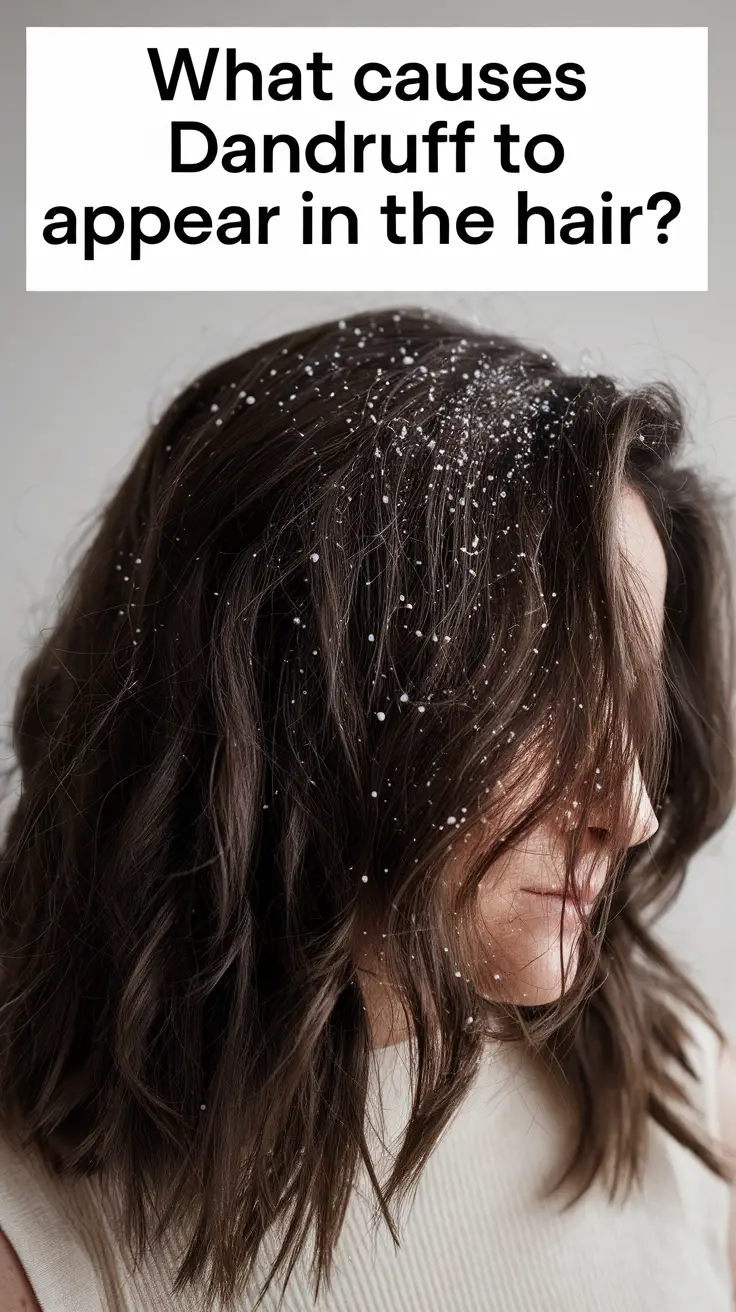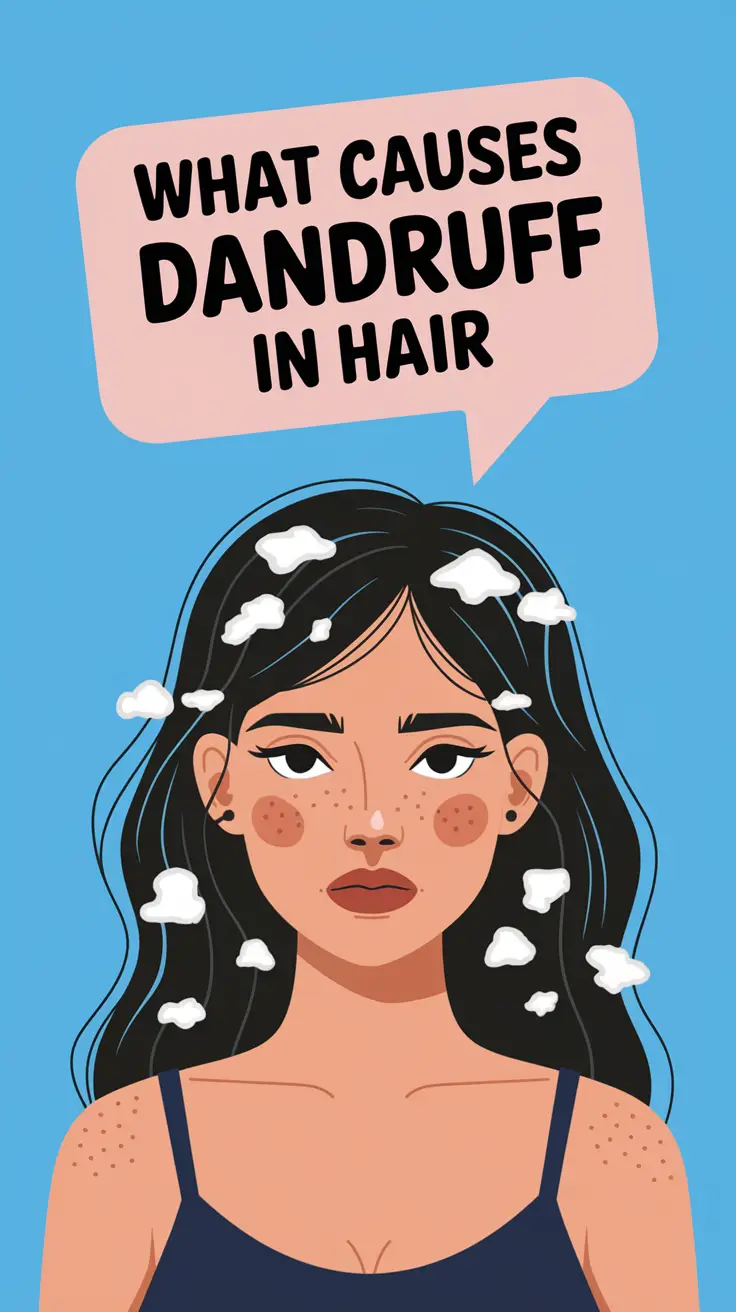What Causes Dandruff in Hair
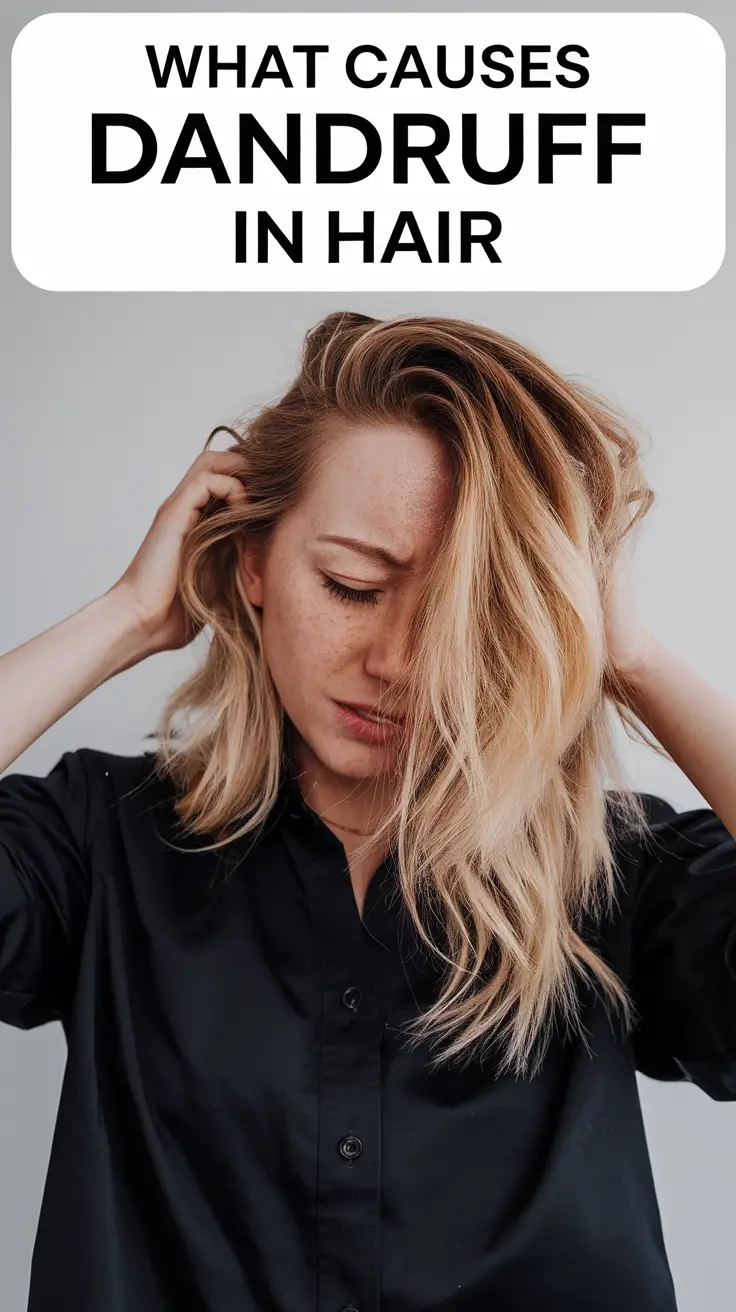
Dandruff is a common, often frustrating scalp condition that impacts millions of people worldwide. Many wonder what triggers those persistent white flakes and itchy scalps. On my journey to understand this better, I realized that dandruff isn’t just about poor hygiene or dry skin—it’s far more complex. By identifying the root causes, you can take steps to effectively manage and even prevent dandruff altogether.
The Main Causes of Dandruff
Seborrheic Dermatitis
Seborrheic dermatitis is one of the primary culprits behind dandruff. This condition makes the scalp greasy and inflamed, resulting in yellowish or white flaky skin. It thrives in areas rich in sebaceous (oil) glands, like the scalp, eyebrows, and the sides of the nose. If you’ve experienced persistent dandruff that worsens in winter, this might be the cause.
| Characteristic | Seborrheic Dermatitis |
|---|---|
| Common Signs | Red, greasy skin with flaky scales |
| Trigger Factors | Hormonal imbalances, genetics, cold weather |
| Treatment Options | Medicated shampoos (e.g., ketoconazole, selenium sulfide) |
Malassezia Yeast Overgrowth
Malassezia is a yeast-like fungus that naturally lives on your scalp. In some cases, it overgrows and feeds on scalp oils, producing an irritant (oleic acid). This irritant speeds up skin cell turnover, leading to visible flakes. For me, switching to a mild antifungal shampoo made a noticeable difference.
| Key Details | Malassezia Overgrowth |
|---|---|
| Symptoms | Itchy scalp, greasy flakes |
| Aggravators | Excess oil, harsh shampoos, poor scalp hygiene |
| Remedies | Antifungal shampoos, balancing scalp oils |
Dry Scalp
When your scalp lacks moisture, it can flake off small, dry particles. I noticed my dandruff worsened in winter, thanks to heating systems that stripped my skin of moisture. Unlike greasy dandruff, these flakes are fine and non-greasy.
| Cause | Dry Scalp |
|---|---|
| Triggers | Cold weather, low humidity, dehydration |
| Management | Hydrating shampoos, scalp oils |
Additional Factors Influencing Dandruff
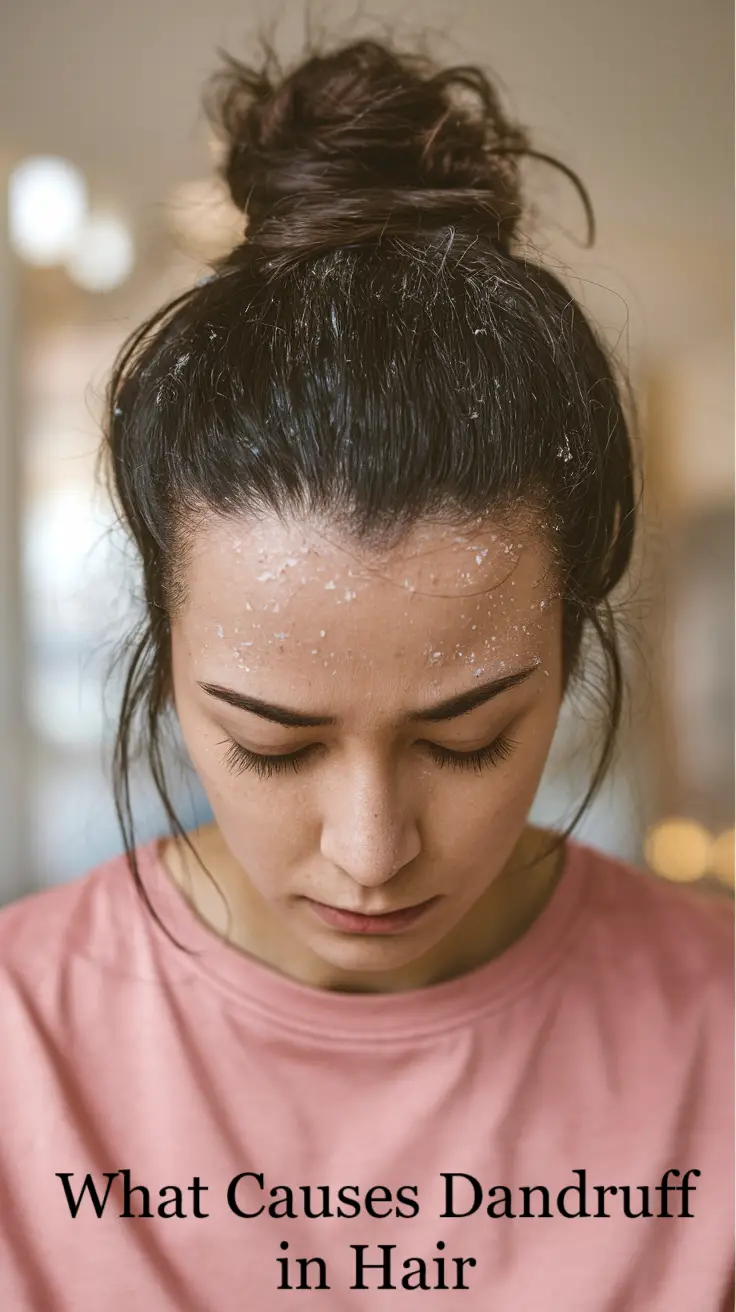
Sensitivity to Hair Products
Some hair products contain sulfates, parabens, or fragrances that irritate sensitive scalps. I found that switching to sulfate-free shampoos helped reduce irritation and flakiness. Using too many styling products can also lead to buildup, creating an ideal environment for dandruff.
Hormonal Imbalances
During life stages like puberty, pregnancy, or menopause, hormones fluctuate and can increase scalp oil production. This provides more “food” for fungi like Malassezia, intensifying dandruff. In my experience, maintaining a consistent hair care routine helped stabilize my scalp.
Stress and Lifestyle
Stress has a sneaky way of exacerbating scalp conditions. It weakens your immune system, allowing dandruff-causing fungi to thrive. Incorporating stress-relief activities like yoga or meditation can support overall scalp health.
Diet and Nutritional Deficiencies
A lack of essential nutrients—such as zinc, B vitamins, and omega-3 fatty acids—can contribute to scalp health issues. When I started including more nuts, fish, and leafy greens in my diet, I noticed an improvement in my scalp condition.
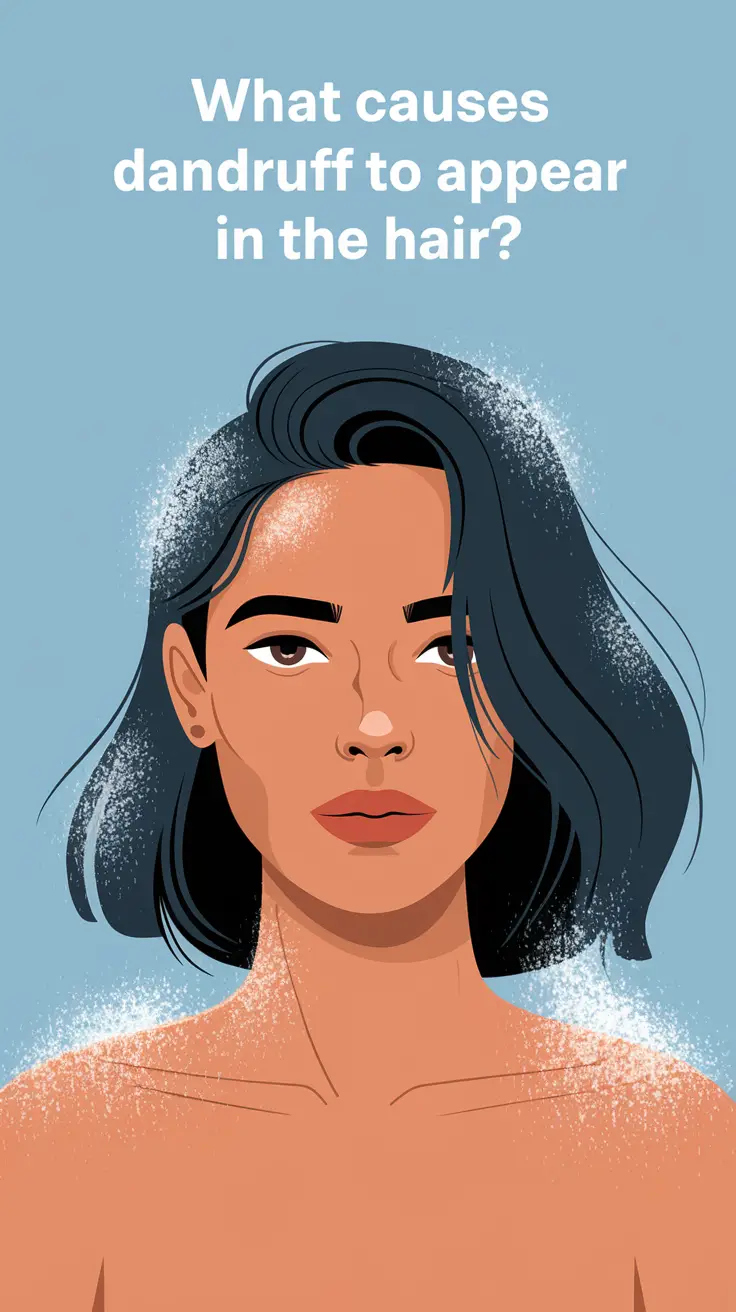
How to Manage and Prevent Dandruff
- Choose the Right Shampoo: Medicated options like ketoconazole or selenium sulfide are effective.
- Hydrate Your Scalp: Use moisturizing shampoos and oils, especially in dry climates.
- Balance Your Diet: Include zinc, omega-3s, and vitamin B-rich foods in your meals.
- Protect Against Environmental Factors: Wear hats in extreme weather and use pollution shields.
- Manage Stress: Practice mindfulness and relaxation techniques.
Conclusion
Dandruff may seem like a small inconvenience, but understanding its causes can transform how you approach it. Whether it’s addressing seborrheic dermatitis, balancing the scalp microbiome, or adjusting your diet, a targeted strategy can yield visible results. On my journey, I discovered that consistent care and minor lifestyle tweaks made a world of difference. Take control of your scalp health—you deserve it!
FAQs
- Can dandruff cause hair loss?
Not directly, but excessive scratching can damage hair follicles and lead to temporary shedding. - Is dandruff contagious?
No, dandruff isn’t contagious. It’s a result of individual scalp conditions. - What’s the best way to treat dandruff?
Using medicated shampoos, maintaining scalp hygiene, and addressing underlying causes like dry skin or fungal overgrowth can help. - Can my diet affect dandruff?
Yes, a diet rich in zinc, omega-3s, and vitamins supports healthy skin and scalp. - Does stress worsen dandruff?
Absolutely. Stress weakens your immune system, making it harder to manage fungal growth and inflammation.
